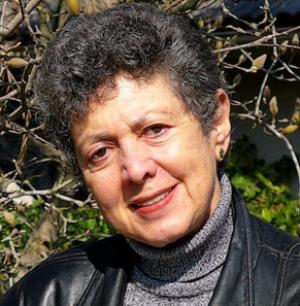Rise and Fall of Lesbian Nation: A Brief History of Lesbian Feminism and What it Accomplished
Lillian Faderman
Lesbian feminism grew directly out of two movements that began in the 1960s: feminism and gay liberation. Though premised on essentialist notions of “woman,” the lesbian feminist movement was an important corrective to the displacement lesbians suffered in the feminist movement, (where they’d been dubbed the “lavender menace”) and in the gay liberation movement (which was overwhelming male). Lesbian feminists created a unique culture that flourished throughout the 1970s and well into the ‘80s and, for many young lesbians, served as a crucial base for their development.
Ramp and elevator access at the E. Washington Street entrance (by the loading dock). There are accessible restrooms on the south end of Lane Hall, on each floor of the building. A gender neutral restroom is available on the first floor.
Ramp and elevator access at the E. Washington Street entrance (by the loading dock). There are accessible restrooms on the south end of Lane Hall, on each floor of the building. A gender neutral restroom is available on the first floor.
| Building: | Lane Hall |
|---|---|
| Website: | |
| Event Type: | Lecture / Discussion |
| Tags: | Lecture, LGBT, Social Justice, Women's Studies |
| Source: | Happening @ Michigan from Institute for Research on Women and Gender, Eisenberg Institute for Historical Studies, Lesbian, Gay, Queer Research Initiative (LGQRI), Department of History, Department of English Language and Literature |
The Thursday Series is the core of the institute's scholarly program, hosting distinguished guests who examine methodological, analytical, and theoretical issues in the field of history.
The Friday Series consists mostly of panel-style workshops highlighting U-M graduate students. On occasion, events may include lectures, seminars, or other programs presented by visiting scholars.
The insitute also hosts other historical programming, including lectures, film screenings, author appearances, and similar events aimed at a broader public audience.


